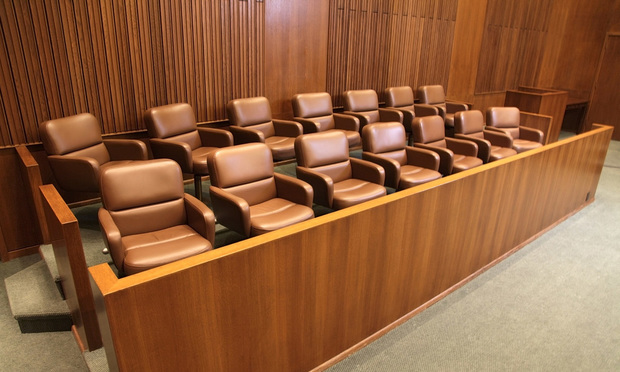Jurors were shocked and on the verge of tears after a state judge in Georgia declared a mistrial nearly a month into a trial on whether Johnson & Johnson’s baby powder caused a woman’s ovarian cancer.
Fulton County State Court Judge Jane Morrison scrapped the trial on Oct. 8 and sent the jury home after the foreperson said they were hopelessly deadlocked, with 10 voting in favor of the daughter and estate of Diane Brower, and two voting for J&J.
This content has been archived. It is available through our partners, LexisNexis® and Bloomberg Law.
To view this content, please continue to their sites.
Not a Lexis Subscriber?
Subscribe Now
Not a Bloomberg Law Subscriber?
Subscribe Now
LexisNexis® and Bloomberg Law are third party online distributors of the broad collection of current and archived versions of ALM's legal news publications. LexisNexis® and Bloomberg Law customers are able to access and use ALM's content, including content from the National Law Journal, The American Lawyer, Legaltech News, The New York Law Journal, and Corporate Counsel, as well as other sources of legal information.
For questions call 1-877-256-2472 or contact us at [email protected]










